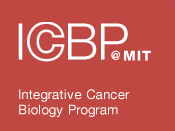| Title | Mutant N-RAS protects colorectal cancer cells from stress-induced apoptosis and contributes to cancer development and progression. |
| Publication Type | Journal Article |
| Year of Publication | 2013 |
| Authors | Wang, Y, Velho, S, Vakiani, E, Peng, S, Bass, AJ, Chu, GC, Gierut, J, Bugni, JM, Der, CJ, Philips, M, Solit, DB, Haigis, KM |
| Journal | Cancer Discov |
| Volume | 3 |
| Issue | 3 |
| Pagination | 294-307 |
| Date Published | 2013 Mar |
| ISSN | 2159-8290 |
| Abstract | N-RAS is one member of a family of oncoproteins that are commonly mutated in cancer. Activating mutations in NRAS occur in a subset of colorectal cancers, but little is known about how the mutant protein contributes to the onset and progression of the disease. Using genetically engineered mice, we find that mutant N-RAS strongly promotes tumorigenesis in the context of inflammation. The protumorigenic nature of mutant N-RAS is related to its antiapoptotic function, which is mediated by activation of a noncanonical mitogen-activated protein kinase pathway that signals through STAT3. As a result, inhibition of MAP-ERK kinase selectively induces apoptosis in autochthonous colonic tumors expressing mutant N-RAS. The translational significance of this finding is highlighted by our observation that NRAS mutation correlates with a less favorable clinical outcome for patients with colorectal cancer. These data show for the first time the important role that N-RAS plays in colorectal cancer. |
| DOI | 10.1158/2159-8290.CD-12-0198 |
| Alternate Journal | Cancer Discov |
| PubMed ID | 23274911 |
| PubMed Central ID | PMC3595397 |
| Grant List | CA118425 / CA / NCI NIH HHS / United States DK043351 / DK / NIDDK NIH HHS / United States K01 CA118425 / CA / NCI NIH HHS / United States P30 DK043351 / DK / NIDDK NIH HHS / United States R01 CA163489 / CA / NCI NIH HHS / United States U54 CA112967 / CA / NCI NIH HHS / United States |
